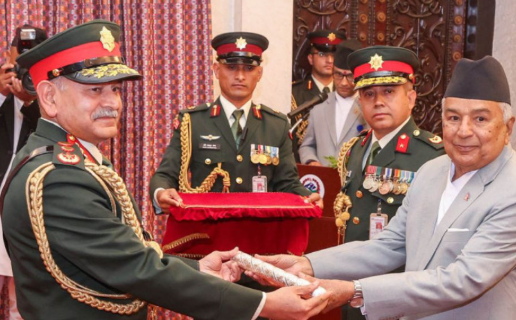Indian Army Chief Receives Nepali Honour
General Upendra Dwivedi, the Indian Army Chief, was recently awarded the title of Honorary General of the Nepali Army and was bestowed during his official visit to Kathmandu. The moment in the longstanding relationship between India and Nepal.
Historical Context
The tradition of honorary generalships dates back to the 1950s, which signifies a unique bond between the two armies. Every three years, the Indian Army Chief receives this honor. Similarly, the Chief of the Nepali Army is also honored in India. This practice showcases mutual respect and friendship.
Significance of the Honour
The honorary title reflects military cooperation and regional stability. It represents trust, solidarity, and commitment to peace. This is more than a ceremonial gesture; it embodies a strong partnership. The relationship is rooted in deep social and cultural ties.
Both armies engaged in various collaborative efforts. They participate in joint training exercises. Military drills are conducted regularly to enhance preparedness. They also coordinate disaster response initiatives. These activities tell their unity and shared objectives.
Cultural Connections
India and Nepal share open borders and cultural similarities. These factors contribute to their close relationship. The honorary generalship reinforces these connections. It marks the importance of cultural diplomacy alongside military ties.
General Dwivedi’s visit further solidifies the relationship. His recognition as an Honorary General enhances mutual understanding. It reflects the respect shared between the two armed forces. This bond has been a mainstay of India-Nepal relations for decades.
Important Facts for Exams:
- Honorary Generalship: This tradition began in the 1950s. It occurs every three years. The exchange signifies mutual respect and friendship between India and Nepal’s armies.
- Cultural Diplomacy: This concept involves using cultural connections to enhance relationships. India and Nepal’s shared heritage strengthens their military ties. Cultural diplomacy complements formal diplomatic efforts.
- Joint Training Exercises: These initiatives enhance military preparedness. Both armies regularly conduct drills together. This collaboration encourages unity and shared objectives in regional security.
Month: Current Affairs - November, 2024
Category: Defence Current Affairs


